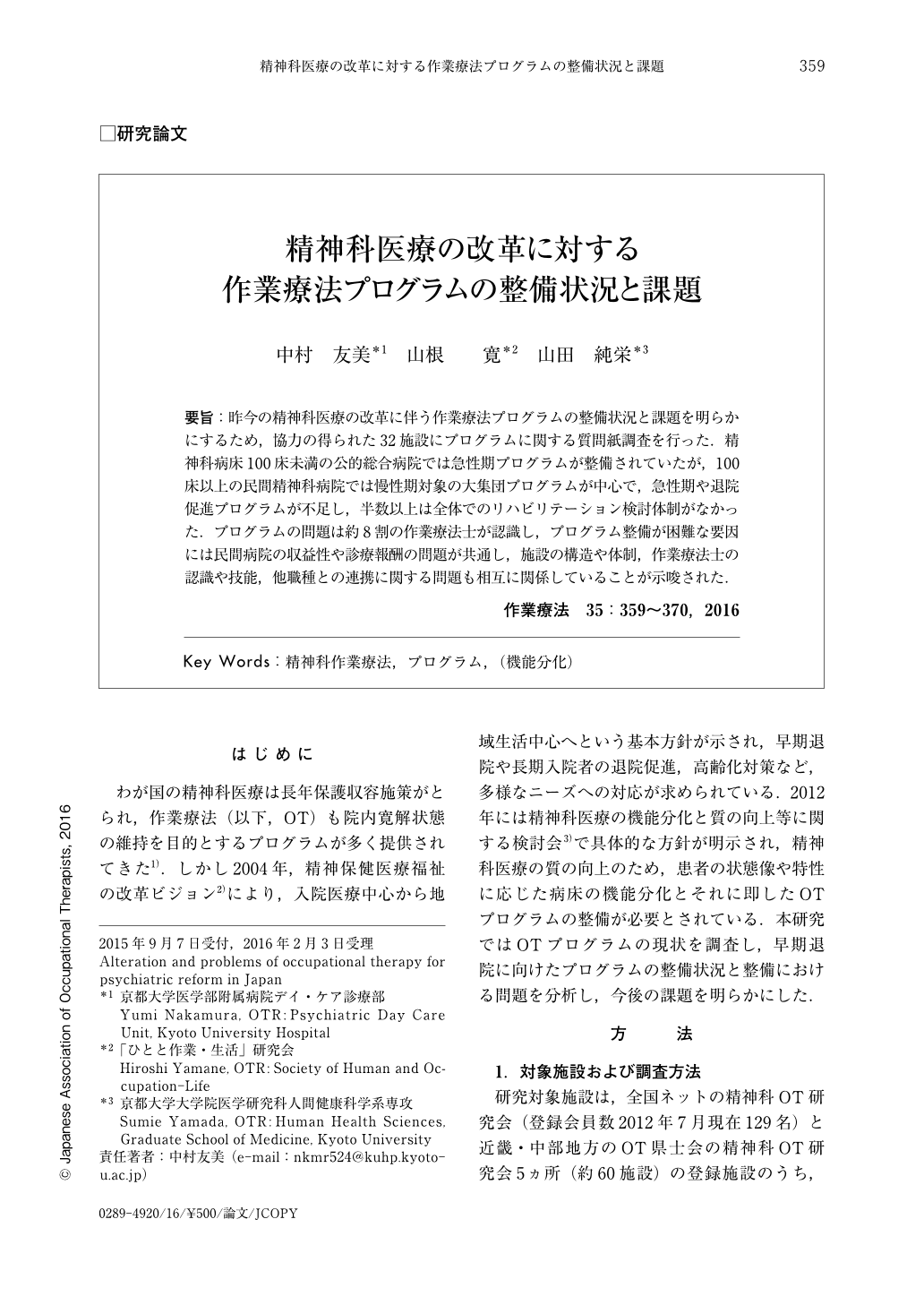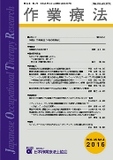Japanese
English
- 販売していません
- Abstract 文献概要
- 1ページ目 Look Inside
- 参考文献 Reference
- サイト内被引用 Cited by
要旨:昨今の精神科医療の改革に伴う作業療法プログラムの整備状況と課題を明らかにするため,協力の得られた32施設にプログラムに関する質問紙調査を行った.精神科病床100床未満の公的総合病院では急性期プログラムが整備されていたが,100床以上の民間精神科病院では慢性期対象の大集団プログラムが中心で,急性期や退院促進プログラムが不足し,半数以上は全体でのリハビリテーション検討体制がなかった.プログラムの問題は約8割の作業療法士が認識し,プログラム整備が困難な要因には民間病院の収益性や診療報酬の問題が共通し,施設の構造や体制,作業療法士の認識や技能,他職種との連携に関する問題も相互に関係していることが示唆された.
To clarify both alteration and problems of occupational therapy programs for psychiatric reform in Japan, a questionnaire was carried out at 32 participating hospitals. General hospitals with less than 100 beds for patients with mental health concerns were found to have acute-phase occupational therapy programs, while private psychiatric hospitals with more than 100 beds offered primarily recreational programs for large groups of long-term patients. The number of acute-phase occupational therapy programs and discharge promotion programs was less in the latter type of hospital. In addition, there was no system in place for occupational therapists to discuss rehabilitation programs with other professionals in more than half of the facilities. About 80% of the occupational therapists reported these problems, but no changes have yet been implemented, possibly due to problems of profitability in the private hospitals, remuneration for occupational therapy, hospital structures and systems, the recognition and skills of occupational therapists, and cooperation with other professionals.

Copyright © 2016, Japanese Association of Occupational Therapists. All rights reserved.


